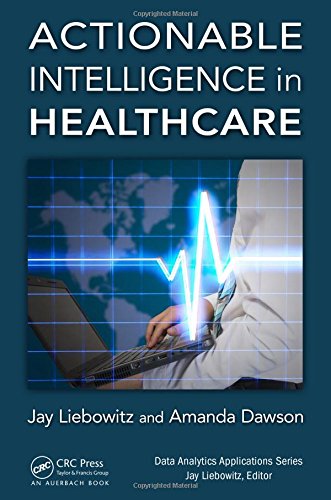

Most ebook files are in PDF format, so you can easily read them using various software such as Foxit Reader or directly on the Google Chrome browser.
Some ebook files are released by publishers in other formats such as .awz, .mobi, .epub, .fb2, etc. You may need to install specific software to read these formats on mobile/PC, such as Calibre.
Please read the tutorial at this link: https://ebookbell.com/faq
We offer FREE conversion to the popular formats you request; however, this may take some time. Therefore, right after payment, please email us, and we will try to provide the service as quickly as possible.
For some exceptional file formats or broken links (if any), please refrain from opening any disputes. Instead, email us first, and we will try to assist within a maximum of 6 hours.
EbookBell Team

4.8
74 reviewsThis book shows healthcare professionals how to turn data points into meaningful knowledge upon which they can take effective action. Actionable intelligence can take many forms, from informing health policymakers on effective strategies for the population to providing direct and predictive insights on patients to healthcare providers so they can achieve positive outcomes. It can assist those performing clinical research where relevant statistical methods are applied to both identify the efficacy of treatments and improve clinical trial design. It also benefits healthcare data standards groups through which pertinent data governance policies are implemented to ensure quality data are obtained, measured, and evaluated for the benefit of all involved.
Although the obvious constant thread among all of these important healthcare use cases of actionable intelligence is the data at hand, such data in and of itself merely represents one element of the full structure of healthcare data analytics. This book examines the structure for turning data into actionable knowledge and discusses:
Actionable Intelligence in Healthcare is an important examination of how proper healthcare-related questions should be formulated, how relevant data must be transformed to associated information, and how the processing of information relates to knowledge. It indicates to clinicians and researchers why this relative knowledge is meaningful and how best to apply such newfound understanding for the betterment of all.